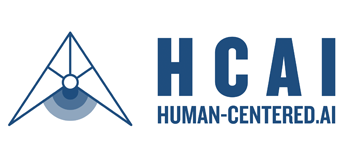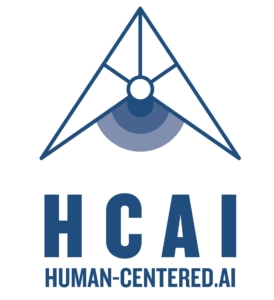Mini Course
Fundamentals of Medical AI

“It is remarkable that a science which began with the consideration of games of
chance should have become the most important object of human knowledge”
Pierre Simon de Laplace, 1812.
Winter Term 2020 (3 ECTS at the WU Executive Academy)
Short Description: This Mini Course on Medical AI is an introduction to a core area of health informatics. The lectures will help you to understand medical decision making. The course will raise awareness on how human intelligence can be augmented by Artificial Intelligence (AI), and Machine Learning (ML) (-> What is the difference between AI/ML?). Andreas Holzinger has taught this course since 2005 in different versions, variations, durations, and at various institutions. This is the 3 ECTS version for the WU Executive Academy.
This page is valid as of October, 04, 2020, 16:00 CEST
Welcome Students !
1) Introduction Video:
https://www.youtube.com/watch?v=UuiV0icAlRs
2) German Speaking students can additionally read this :
https://link.springer.com/article/10.1007/s00287-018-1102-5
3) Attend class and enjoy the coffee breaks
4) Take the exam successfully!
Exam Questions availabe via GoogleDocs
(Information will be given during the lecture)
Module 00 – Primer on Probability and Information (optional)
When confronted with decision making we inherently must deal with our world of uncertainty. The strenght of probabilistic machine learning results from the mathematically thus computationally mechanisms of the combination of prior knowlege with incoming new data.
Topic 00: Mathematical Notations
Topic 01: Probability Distribution and Probability Density
Topic 02: Expectation and Expected Utility Theory
Topic 03: Joint Probability and Conditional Probability
Topic 04: Independent and Identically Distributed Data (IIDD)
Topic 05: Bayes and Laplace
Topic 06: Measuring Information: Kullback-Leibler Divergence and Entropy
Lecture slides full size (3,984 kB): 0-PRIMER-Probability-and-Information-2019-09-18-HOLZINGER-print
Reading for students:
David J.C. Mackay 2003. Information theory, inference and learning algorithms, Boston (MA), Cambridge University Press.
Online available: https://www.inference.org.uk/itprnn/book.html
Slides online available: https://www.inference.org.uk/itprnn/Slides.shtml
An excellent resource is: David Poole, Alan Mackworth & Randy Goebel 1998. Computational intelligence: a logical approach, New York, Oxford University Press, where there is a new edition available along with excellent student resources available online:
https://artint.info/2e/html/ArtInt2e.html
Module 01 – Introduction to Medical AI and Machine Learning for Health Informatics
Topic 01: Success Stories: Towards Human-level performance in Medical AI
Topic 02: Why is health a complex application area ?
Topic 03: Probabilistic Learning: The basics of the success stories of topic 01
Topic 04: Automatic Machine Learning (aML)
Topic 05: Interactive Machine Learning (iML)
Lecture slides (4 slides per page, 2 x 2, pdf, 5,813 kB): 1-Medical-AI-HOLZINGER-2020-INTRODUCTION-2×2
Lecture slides full size (pdf, 6,995 kB): 1-Medical-AI-HOLZINGER-2020-INTRODUCTION
Youtube (open this link in a new window to adapt the player to 4:3): https://www.youtube.com/watch?v=nVfqV0wi9lA
Module 02 – From Data to Knowledge Representation
Topic 00 Reflection – follow-up from last lecture
Topic 01 Data: the underlying physics of data
Topic 02 Biomedical data sources: Taxonomy of biomedical data
Topic 03 Data Integration, mapping, fusion, Digression: data augmentation
Topic 04 Knowledge Representation
Topic 05 Biomedical ontologies
Topic 06 Biomedical classifications
Lecture Slides (4 slides on one page, 2 x 2, pdf 9,221 kB) 2-Medical-AI-HOLZINGER-2020-DATA-KNOWLEDGE-REP-2×2
Lecuture Slides full size (pdf, 8,850 kB) 2-Medical-AI-HOLZINGER-2020-DATA-KNOWLEDGE-REP
Youtube (open this link in a new window to adapt the player to 4:3): https://www.youtube.com/watch?v=_rrfGTAn7Ck
Module 03 – From Decision Making to Decision Support
Topic 00 Reflection – follow-up from last lecture
Topic 01 Medical Action = Decision Making
Topic 02 Can AI help doctors to make better decisions ?
Topic 03 Human Information Processing
Topic 04 Probabilistic Decision Theory
Topic 05 Example: P4 Medicine
Topic 06 Example: Case Based Reasoning
Lecture Slides 2×2 (pdf, 7,134 kB) 3-Medical-AI-HOLZINGER-2020-DECISION-MAKING-2×2
Lecture Slides full size (pdf, 16,126 kB) 3-Medical-AI-HOLZINGER-2020-DECISION-MAKING
Youtube (open this link in a new window to adapt the player to 4:3): https://www.youtube.com/watch?v=C3V8PQ-bgIM
Module 04 – From Decision Support Systems to Causability
Topic 00 Reflection – follow-up from last lecture
Topic 01: History of Decision Support Systems (DSS) = History of AI
Topic 02: Causality and Decision Making
Topic 03: Medical Communication
Topic 04: Causal Reasoning
Topic 05: Interpretability
Lecture slides 2×2 (pdf, 5,884 kB): 4-Medical-AI-HOLZINGER-2020-DECISION-CAUSABILITY-2×2
Lecture slides full size (pdf, 5,108 kB): 4-Medical-AI-HOLZINGER-2020-DECISION-CAUSABILITY
Youtube (open this link in a new window to adapt the player to 4:3): https://www.youtube.com/watch?v=hpRWERBWlho
Some practical links:
32 Examples of AI in Healthcare (Sam Daley, builtin, US):
https://builtin.com/artificial-intelligence/artificial-intelligence-healthcare
Similar courses on medical AI:
https://www.classcentral.com/course/ai-for-medical-diagnosis-19461
https://mltut247.medium.com/best-ai-courses-for-healthcare-you-should-know-in-2021-92bd59f0fa61
https://online-learning.harvard.edu/subject/artificial-intelligence
About the Lecturer:
Andreas Holzinger promotes a synergistic approach to Human-Centred AI (HCAI) and has pioneered in interactive machine learning (iML) with the human-in-the-loop. He promotes an integrated machine learning approach with the goal to augment human intelligence with artificial intelligence to help to solve problems in health informatics.
Due to raising ethical, social and legal issues governed by the European Union, future AI supported systems must be made transparent, re-traceable, thus human interpretable. Andreas’ aim is to explain why a machine decision has been reached, paving the way towards explainable AI and Causability, ultimately fostering ethical responsible machine learning, trust and acceptance for AI.
Andreas obtained a Ph.D. in Cognitive Science from Graz University in 1998 and his Habilitation (second Ph.D.) in Computer Science from Graz University of Technology in 2003. Andreas was Visiting Professor for Machine Learning & Knowledge Extraction in Verona, RWTH Aachen, University College London and Middlesex University London. Since 2016 Andreas is Visiting Professor for Machine Learning in Health Informatics at the Faculty of Informatics at Vienna University of Technology. Currently, Andreas is Visiting Professor for explainable AI, Alberta Machine Intelligence Institute, University of Alberta, Canada.
Andreas Holzinger is lead of the Holzinger Group (HCAI-Lab), Institute for Medical Informatics/Statistics at the Medical University Graz, and Associate Professor of Applied Computer Science at the Faculty of Computer Science and Biomedical Engineering at Graz University of Technology. He serves as consultant for the Canadian, US, UK, Swiss, French, Italian and Dutch governments, for the German Excellence Initiative, and as national expert in the European Commission. His is in the advisory board of the Artificial Intelligence Strategy AI made in Germany of the German Federal Government and in the advisory board of the Artificial Intelligence Mission Austria 2030.
Personal Homepage: https://www.aholzinger.at
Video for Students: https://youtu.be/lc2hvuh0FwQ
Group Homepage: https://human-centered.ai
Google Scholar: https://scholar.google.com/citations?hl=en&user=BTBd5V4AAAAJ&view_op=list_works&sortby=pubdate
Additional study material:
Course Biomedical Informatics – Discovering Knowledge in (big) data (1 semester – 12 lectures – 3 ECTS):
https://human-centered.ai/biomedical-informatics-big-data/




